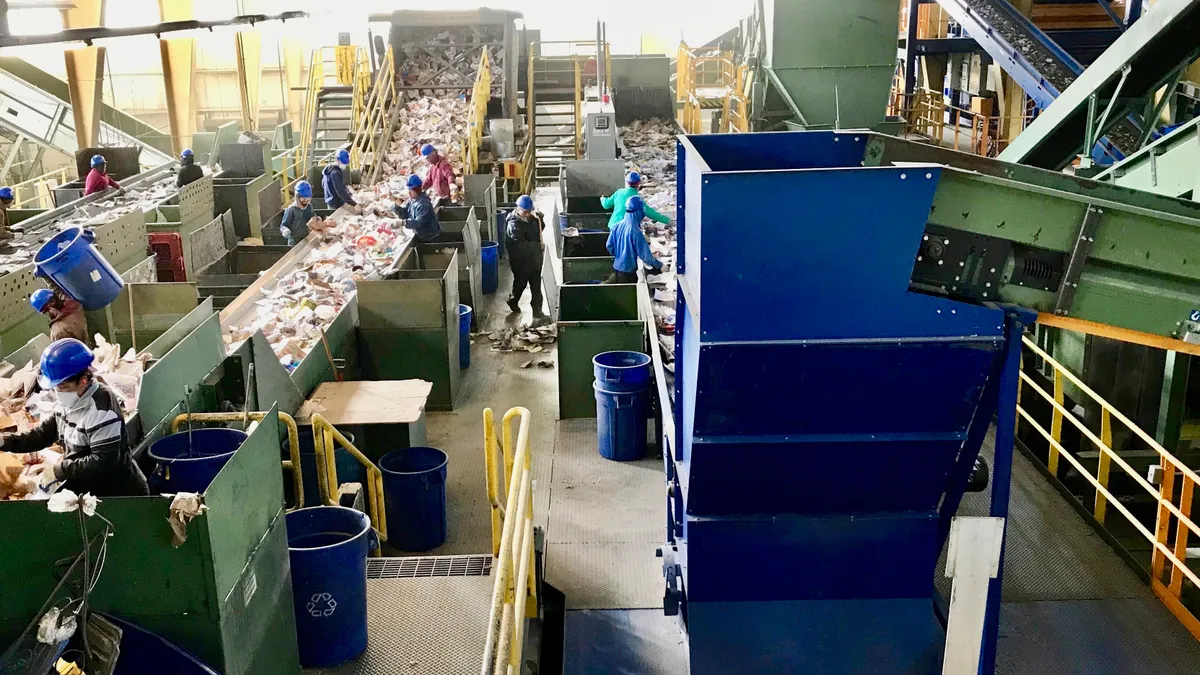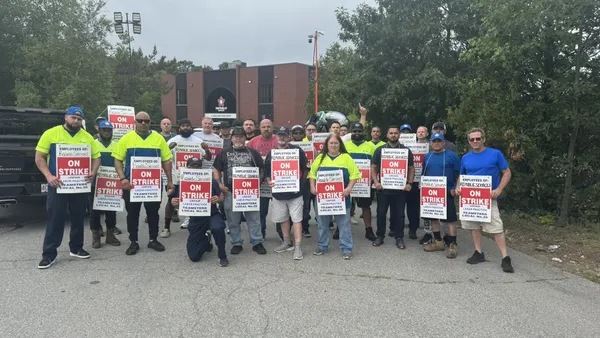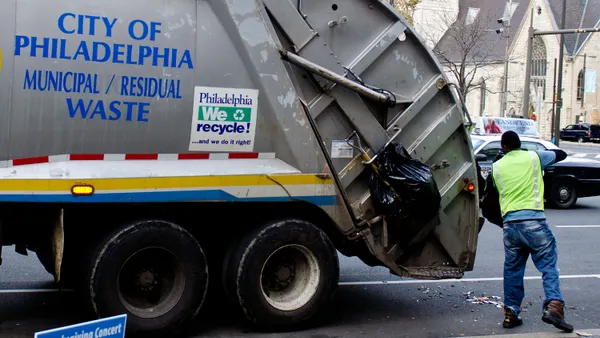Dive Brief:
- Earlier this month, Colorado Gov. Jared Polis signed SB20-055, or the “Incentivize Development Recycling End Markets” bill. The legislation directs the state's Department of Public Health and Environment (DPHE) to provide a plan by July 2021 for what a recycling market development center could look like in Colorado.
- Though the bill stops short of guaranteeing the center will come together, sources think enough stakeholders support the concept for it to eventually become a reality. The initiative, MRF operators think, could tie together the financial, political and business support factors needed to create a stronger statewide recycling and reuse industry.
- In addition to prompting research into a potential market development center, the bill directs money toward a statewide recycling education campaign and asks for a literature review into how other states handle extended producer responsibility (EPR). Based on that review, DPHE will "create policy and legislative recommendations regarding the feasibility of requiring producers to design, manage, and finance programs for end-of-life management of their products and packaging."
Dive Insight:
The legislation itself came from a bipartisan Zero Waste and Recycling Interim Study Committee started in 2019. “That interim committee was really the first time the legislature has really gotten serious about recycling in Colorado,” Kate Bailey, the policy and research director at Eco-Cycle, a nonprofit recycler in Boulder, told Waste Dive. Per this research, one of the biggest barriers to the end of goal of "zero waste" is a strong recycling and reuse industry within the state, Bailey said.
Colorado struggles to tap into other, farther recycling economies because it is landlocked and more sparsely-populated, Bailey said. Gathering materials from spread out residents is time-consuming, and statewide collection rates are low. In 2018, about 17% of Colorado's municipal solid waste got recycled or composted, according to an Eco-Cycle report. Due to a lack of feedstock, some of Colorado’s several manufacturers using glass packaging buy and import recycled content from other states, Bailey said.
A recycling market development center would ideally boost recycling levels in Colorado while encouraging an industry that makes use of those materials, Bailey said. Some of those motivators are already in place. One DPHE program, NextCycle, is an incubator for start-ups making use of waste streams. Launched in 2019, the state program encourages business development to help Colorado meet its 2036 goal of a 45% recycling rate. The state also sponsors a grant program that funds investments in recycling collection efforts and technology.
An institution overseeing these programs — and potentially encouraging legislation that would increase recycling rates or provide other reuse motivators — might help build a statewide industry. “We need to stop shipping our materials all over the country, and start remanufacturing more here in Colorado,” Bailey said. Whether someone’s proposed waste reduction effort involves glass, technology or byproducts from the state’s cannabis industry, “any businesses that we can develop would be super helpful.”
When pitching the idea of a more robust recycling economy, Bailey said that opportunities for new jobs resonated the most with legislators. This motivator aligns the state with other efforts like the Southeast Recycling Development Council and programs in North and South Carolina, all of which served as models for what the Colorado development center could look like. The North Carolina program provides funding and education resources for potential companies, and assistance dealing with permitting processes. The South Carolina initiative also emphasizes helping existing businesses figure out recycling or zero waste options.
Before any center is running, the DPHE has to assemble an outline of how it would operate. As the agency's sustainability unit manager, Rachel Wilson-Roussel is one of the people tasked with this research. Her office will gather input on what policies and structure would be best to run this kind of development center. How other states approached this concept and where funding might come from will be likely focus areas, she said. The staff will also develop a statewide recycling campaign, which should start appearing in the public by early 2021.
Though the Colorado bill doesn’t explicitly authorize the start of a recycling market development center, Wilson-Roussel thinks this is something relevant parties are interested in. In a way, NextCycle was the first government attempt at advocating for this industry. A specific division meant to tie business development to other encouragements is viewed as a “2.0” version of that initiative.
“I think most stakeholders that we've spoken with are committed to seeing that fully fledged center emerge,” Wilson-Roussel said. “I just think that it might not be as quick as some people would hope for.”
Meanwhile, the team will also investigate what EPR programs look like in other states and draft related policy recommendations for Colorado. While policy momentum on EPR has stalled in some states due to virus-related legislative disruptions, supporters elsewhere see the potential for progress on multiple bills in the future.










